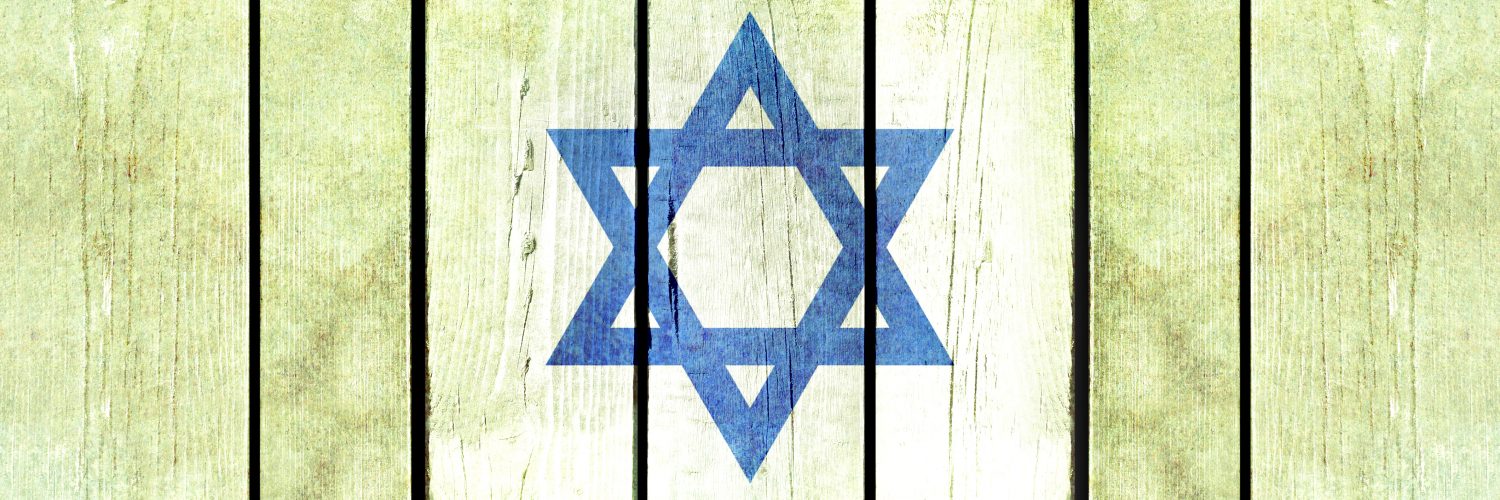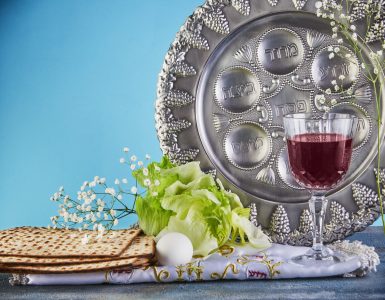Although the Gemara and Rishonim rule unambiguously that one may only violate Shabbos for the Pikuach Nefesh of a Yisrael, not for a Nachri, the Chasam Sofer’s ruling on this matter is well known (Shu”t 2:131): if there is any concern of genuine Sakana, one may violate even Issurim d’Oraisa. It is also known that the Divrei Chaim records the Takana of the Va’ad Arba Aratzos[1] to permit Issurim d’Oraisa on Shabbos due to the concern of Sakana.
Nevertheless, studying the Gemara and Rishonim leads to practical Halachic ramifications. The Rambam writes in the second Perek of Hilchos Shabbos:
One may assist in the birth of a daughter of a Ger Toshav for we are commanded to revive a Ger Toshav, [but] we may not desecrate Shabbos for her. (Halacha 12)
The source of this Halacha is the Gemara in Avoda Zara that permits Chillul Shabbos if there is any concern of “Eiva” (potential enmity) if a Jew were to refrain from saving a gentile’s life because of Shabbos. According to Tosfos (ibid. 26b) this only permits Issurim d’Rabbanan, and most Rishonim follow this approach.[2] Contemporary Poskim have discussed this matter in depth, outlining the circumstances when one may violate Issurim d’Oraisa due to Sakana and Eiva.
There is a fundamental distinction between a Nachri who worships Avoda Zara and a “Ger Toshav”. What is a Ger Toshav? The Gemara (Avoda Zara 64) records several opinions: One opinion is that it refers to a Nachri who accepts all of the Mitzvos except for the prohibition to consume Neveila (meat of an animal that was not properly slaughtered). Another opinion is that he accepts not to worship Avoda Zara. The Halacha[3] follows the opinion of the Chachamim that it refers to a Nachri who accepts to observe the Sheva Mitzvos B’nei Noach. Unlike other Nachrim, there is a Mitzva to uphold the life of a Ger Toshav and he is permitted to dwell in Eretz Yisrael.
Despite his unique status, a Ger Toshav is considered a Nachri with regard to Chilul Shabbos to save his life. The reason for this is simple. The Gemara (Yoma 85) delineates two main reasons why Pikuach Nefesh supersedes Shabbos. One is “v’Chai Bahem”, which only applies to a person who is obligated in Mitzvos, not Nachrim. The second is, “v’Shamru V’nei Yisrael Es haShabbos” – “Desecrate one Shabbos for him so that he will observe many other Shabbosos”. This also clearly only applies to a Yisrael who is obligated to keep Shabbos. This is why the Rambam rules that one may not desecrate Shabbos even for the sake of a Ger Toshav.
In light of the above, the Tashbetz’ stance on this matter is surprising. In his commentary on the Azharos[4], entitled “Zohar haRakia” he states (Azhara 39):
This is the Mitzva of Pikuach Nefesh which sets aside Shabbos. Included in this is a Ger Toshav, as they said: “If your brother becomes impoverished and his means falter, you shall strengthen him, Ger or resident, and he shall live with you.[5]” The Gemara states: “A Ger – you are commanded to uphold his life. Nachri – you are not commanded to uphold his life.”[6]
Simply understood, the Tashbetz’s intent is that the Mitzva of Pikuach Nefesh sets aside Shabbos also for a Ger Toshav. However, since, this is a very difficult position to justify as detailed above, haGaon Rav Asher Weiss Shlit”a proposed a forced reading of the Tashbetz so that it will be consistent with the Rambam’s position:
We should suggest a forced explanation (“Dachuk”) that his intent is only that a Ger Toshav is included in this Mitzva; [i.e.,] that it is a Mitzva to save his life, not that his rescue sets aside Shabbos. When he states “This is the Mitzva of Pikuach Nefesh which sets aside Shabbos”, his intent is only that saving a Yisrael – which constitutes the main application of this Mitzva – sets aside Shabbos but one is not forced to say that Shabbos is also desecrated to save the life of a Ger Toshav.
However, Rav Asher concedes that this is not the simple understanding of the Tashbetz; apparently, he does hold that Shabbos is set aside to save the life of a Ger Toshav, unlike the position of the Poskim who unanimously rule like the Rambam.[7] This fascinating ruling of the Tashbetz may shed light on another of his rulings that is also the subject of great discussion among the Poskim.
The Tzitz Eliezer (10:25:2) discusses a fascinating question: May one desecrate Shabbos on account of a Ger who has had Bris Mila but has not yet immersed in a Mikva? Gerus is only complete after Mila followed by Tevila, and there must always be several days between the two because water is harmful to the fresh Mila (Shulchan Aruch, Y.D. 268:2). If he is in a state of Sakana on a Shabbos between his Mila and Tevila, is Chilul Shabbos permitted?
At first glance, the answer would seem to be no. The Halacha is that “One who has Mila without Tevila, it is as if he has not had Mila”; if so, he remains a Nachri for whom Chilul Shabbos is not permitted (absent any concern of Eiva). However, the Tzitz Eliezer rules that Chilul Shabbos is warranted! His source is an extraordinary inference from another Teshuva of the Tashbetz (1:21) in which he rules that it is forbidden to perform Bris Mila on Gerim on Thursday because the third day following the Mila will be Shabbos. Since the third day is the most painful, this may lead to Chilul Shabbos due to Sakana. [As we have discussed on other occasions, it is forbidden to act in a manner that will cause Pikuach Nefesh on Shabbos thus requiring its desecration.] The Tzitz Eliezer points out that the Ger in question will not have performed Tevila before Shabbos; his Mila (which must precede the Tevila) was only on Thursday (and there must be several days between them, as explained above). If so, the Tashbetz is clearly stating that if the Bris would be performed on Thursday one would need to desecrate Shabbos if the Ger’slife would be endangered, even though he has only had Mila and not Tevila!
This ruling of the Tashbetz is cited l’Halacha by the Beis Yosef (Y.D. ibid.) and the Shach (266:18); the Poskim do not question it. The Tzitz Eliezer notes that this is most surprising, after all, it appears to be an enormous Chiddush.
The Tzitz Eliezer discusses the Tashbetz’s possible reasoning at length, in great depth and detail. He cites the Binyan Tzion[8] (91) who discusses a case that arose in Yerushalayim in 5608 of a Ger who had undergone Mila but not Tevila. One of the Chachmei Yerushalayim instructed him to desecrate Shabbos because “A Nachri who observes Shabbos is liable to the death penalty”. Since he had only had Mila and not Tevila, he was a Nachri to whom this Halacha applied.
This ruling caused a small uproar. The Binyan Tzion opined that it is unlikely that it was forbidden for this Ger to observe Shabbos, after all, Bris Mila is a covenant between a person and Hashem, as invoked in the Bracha, “Kores haBris”, and Shabbos is also a Bris between the Jewish people and Hashem. How can somebody who has already entered one Bris be forbidden from guarding the other Bris? In other words, even if the Ger was not yet considered a Jew, he nevertheless had a connection to the Jewish people with regard to observing Shabbos.
The Tzitz Eliezer says a remarkable Chiddush. In terms of Pikuach Nefesh, the deciding factor in whether Chillul Shabbos is permitted is the connection of the endangered person to the observance of Shabbos. In this case, according to the Binyan Tzion, the Ger had a connection to Shabbos and this would be sufficient to set aside Shabbos to save his life.
He bases this conclusion on the Gemara in Avoda Zara (26b) that explains why a midwife can refuse to deliver the baby of a Nachris on Shabbos, even when there is a concern of Eiva, and even for pay. The reason is that the midwife can allay the Eiva by claiming: “For one who observes Shabbos, it is permissible for us to desecrate Shabbos to save his life. But it is forbidden for us to desecrate Shabbos for one who does not observe Shabbos.”
This, contends the Tzitz Eliezer, is the determining factor in deciding for whom we desecrate Shabbos. We do not only do so for Jews, we do so for anybody who has a connection to Shabbos. Since the Gemara stated that we should “Desecrate one Shabbos for him so that he will observe many other Shabbosos”, anybody who will observe Shabbos is included, even if they are not yet a Jew! This was the reasoning of the Tashbetz.
There is much to discuss about this remarkable approach. For example, invoking the reasoning of the midwife from the Gemara in Avoda Zara which seems to be only an excuse intended to mollify the Nachris seems slightly incongruous. However, it does perfectly explain the Tashbetz’ position regarding a Ger who has had Mila but not Tevila.
Concerning a Ger Toshav, however, the Halacha would presumably be that one cannot be Mechallel Shabbos according to the Tzitz Eliezer. Since a Ger Toshav has no connection to Shabbos, there would seem to be no basis for Chillul Shabbos to save his life.
However, in light of the aforementioned ruling of the Tashbetz that one does desecrate Shabbos to save a Ger Toshav, we must suggest a different approach, one that renders the Tzitz Eliezer’s enormous Pilpul unnecessary! According to the Tashbetz, there is a broader ruling: Shabbos should be set aside even for a Ger Toshav who has only accepted the Sheva Mitzvos B’nei Noach. If so, it is no surprise at all that he would say the same of a Ger who had Mila and not Tevila as his Halachic status is certainly superior to that of a Ger Toshav!
[1] The Council of Four Lands was the central body of Jewish authority in the Polish–Lithuanian Commonwealth from the second half of the 16th century to 1764, located in Lublin. The Council’s first law is recorded as having been passed in 1580.
[2] The Ritva holds that one may not even violate Issurim d’Rabbanan. Further discussion is beyond the scope of this essay.
[3] See Shulchan Aruch Y.D. 124, for example.
[4] Azharos are Piyutim that list the Taryag Mitzvos and were recited on Shavuos in the time of the Geonim. The Tashbetz (R’ Shimon ben Tzemach; 1361-1444, Barcelona) wrote a commentary on the Azharos of Ibn Gabirol.
[5] Vayikra 25:35
[6] Pesachim 21b
[7] Of course, in practice one must always consider the possibility of Eiva, as explained above.
[8] R’ Yaakov Ettlinger (1798-1871), Rav of Altoona, Germany and author of Aruch laNer, Bikurei Yaakov, and Shu”t Binyan Tzion.















Add comment